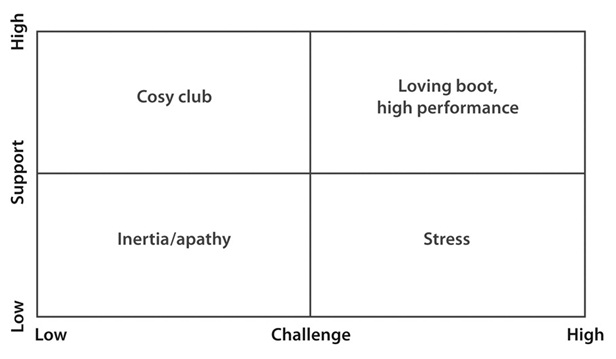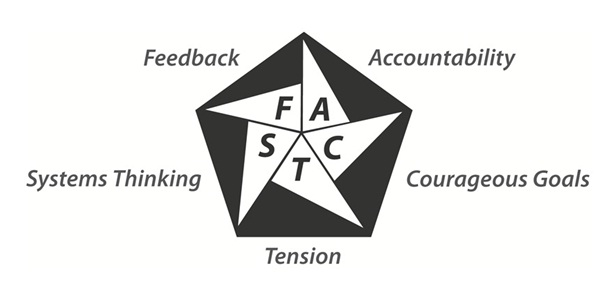They challenged coaching, but now leadership is the target say John Blakey and Ian Day. Here's a quick intro to the new series.
What is the most appropriate leadership style in these challenging times? What style effectively balances the need for short term financial results and the longer term need for sustainable business practices? What is the style that best aligns with modern social expectations yet still retains a necessary authority to get things done? These are the sort of questions that the leaders I coach are grappling with as they attempt to successfully navigate a business world that is being transformed by globalisation, technology and shifting social expectations.
In the good old days, it was much simpler. Traditional ‘command and control’ cultures placed authority and information in the hands of powerful managers who told people what to do, utilising clear lines of command to execute action and monitor success. When I started my own career, as a graduate trainee at British Gas, many of the management practices I witnessed would now be regarded as, at best, ineffective and, at worst, downright abusive. Now technology has put information in the hands of anyone who wants it, globalisation has created a confusing, cross-cultural landscape and shifting social expectations mean that Generation Y responds very differently to leadership behaviours that previously worked well with the Generation X and baby boomer colleagues that preceded them.
The command-and-control style of leadership is discredited yet still lingers on in pockets of organisational life. Elsewhere a strangely modern ‘laissez-faire’ attitude has taken hold with some managers. In this mode, overwhelmed managers have either given up caring and are simply going through the motions or they have become subversive ‘seat blockers’ and ‘well poisoners’ – quietly undermining organisational change with a well-practised cynicism and adroit means of avoiding responsibility. Others have become ‘cosy club’ leaders and are busy supporting the needs of their teams, building high trust relationships yet losing focus upon the need to deliver results on time and to budget.

What then is an alternative way through this leadership conundrum? The diagram above, originally researched by Daloz amongst others, demonstrates that there are two variables which are essential to maximise performance: support and challenge. It is when these two are out of balance that performance and growth suffer. We can characterise the traditional ‘command and control’ style of leadership as high challenge / low support – the job gets done in the short term but over the long term trust is undermined, ethical boundaries are crossed and performance becomes unsustainable. Similarly, the ‘laissez-faire’ attitude would sit in the low challenge / low support quadrant – the overwhelmed manager stops caring and abandons both task and people to the vagaries of shifting organisational pressures. The low challenge / high support quadrant is the home of the ‘cosy club’ leader who is preoccupied with building relationships and staying popular by looking after the needs of his/her team yet sacrifices successful completion of the task at hand along the way.
The high support / high challenge quadrant of this matrix is where growth and development of individuals, teams and organisations can be maximised. I refer to this zone as the 'loving boot' since it recognises that sometimes we all need a ‘kick’ but we respect this most when it is delivered by someone who we trust and respect. This high support / high challenge style represents an alternative mind-set for the modern leader, the ‘player-coach’. In the book ‘Challenging Coaching’ that Ian Day and I have co-authored we explore the practical skills that are involved in administering the ‘loving boot’ and working in the high challenge / high support quadrant as a ‘player-coach’. In doing this we have drawn significantly from our own experience as coaches and business leaders but also from the experience we have gained working with Olympic sports coaches and their athletes where the ‘loving boot’ style appears to be more institutionally established. We have distilled the essence of our experience into five behavioural cornerstones known as the FACTS model. The acronym FACTS stands for Feedback, Accountability, Courageous goals, Tension and Systems thinking.

In the coming months, I will be exploring the application of each of the FACTS cornerstones by looking at how they can be applied to common management challenges such as delegation, managing upwards, performance evaluation, client negotiation, team collaboration, goal setting and managing the matrix. I hope this introduction has whetted your appetite and aroused your curiosity regarding the ‘loving boot’, high challenge / high support style of leadership and look forward to your comments and observations as we journey through the model together. Throughout, I will be asking if you are willing to step up and face this modern leadership challenge? Are you willing to face the FACTS and become a ‘player-coach’?
Ian and John's book 'Challenging Coaching– Going beyond traditional coaching to face the FACTS' published by Nicholas Brealey Publishing is available on Amazon. More resources, including a free chapter download can be accessed via www.challengingcoaching.co.uk. This is the first of a monthly column on TrainingZone to explore the detail of challenging leadership.










